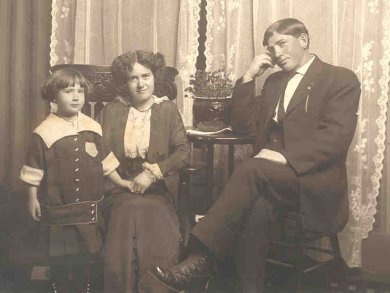
Men's and women's domestic roles are not ordained by human nature, biology, or men's and women's psychology. Rather, they are the product of particular historical circumstances, social processes, and ideologies, and vary widely by race, religion, and time period. Far from being fixed and static categories, motherhood and fatherhood are social, cultural, and ideological constructs. Their social definition and meaning has been changing, varied, and contested (by Steven Mintz, 2003; Mothers and Fathers in America: Looking Backward, Looking Forward, in Digital History).
This is the first paragraph of a fascinating essay on how Americans have perceived mothers and fathers over the last 300 years. I keep pondering how much of what Darla Shine and her supporters say echoes so many historical things I've read, like the wonderful online exhibits by the UVA's American Studies program on Late 19th Century Advice for Women, The Nineteenth Century 'Cult of the Lady', and the McCord Museum of Canadian History's Thematic Tour on The Cult of Domesticity.
Then there are the more recent popular works, like this commonly found internet graphic of the Good Wife's Guide from 1955's Housekeeping Monthly. Jennifer Heller has an interesting paper on Marriage, Womanhood, and the Search for 'Something More' through the 1970's in the Journal of Religion and Popular Culture that includes a look at Marabel Morgan's The Total Woman, which really did have many amazing parallels with Happy Housewives, both in content and in terms of its self-help orientation.
But back to Steven Mintz and his amazing, challenging essay. It's a fairly long article, but really eye-opening, and I urge everyone who makes statements about what is "natural", "best", "the way it should be" or "the way it's always been" for mothers or fathers to read this before saying anything so simplistic again. Mintz's conclusion, which I think most of us would find unarguable: "What is unique today is that the conceptions of fatherhood and motherhood are more problematic and contested politically than at any time in the past."
2 comments:
According to snopes.com, it's not clear whether that 1955 Good Housekeeping snippet is genuine. If anyone were able to verify it, it would be quite a coup!
http://www.snopes.com/language/document/goodwife.htm
Not that societal expectations of housewives in the '50s weren't appalling!
It did seem too good to be true, especially the last couple lines. But if you think that societal expectations were appalling in the 50's, you should read some of the modern stuff. Basically, all that *and* raise super-children and be a sex goddess.
Post a Comment